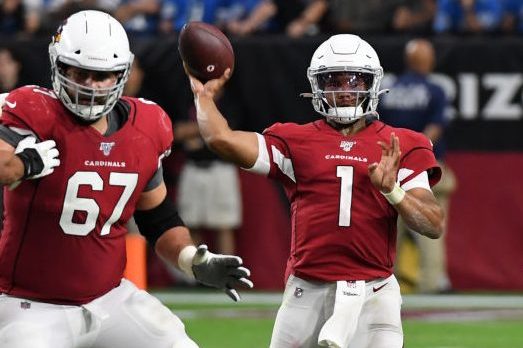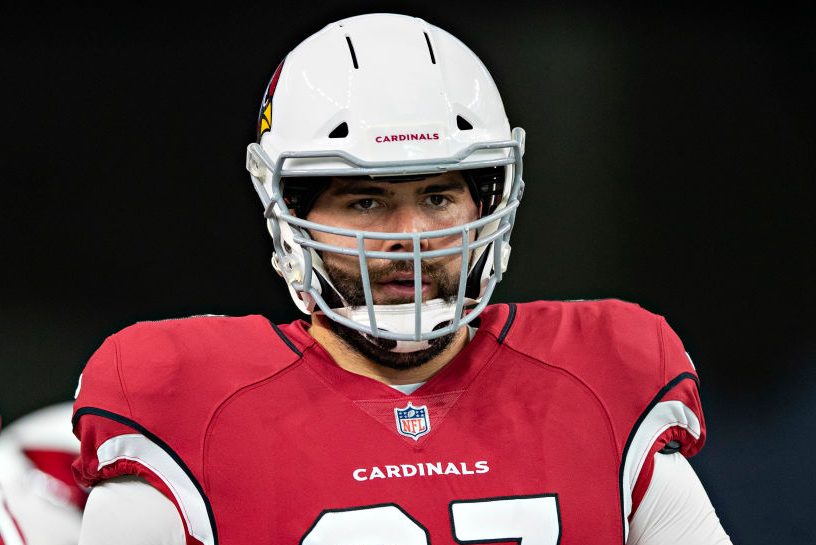Last August, Indianapolis Colts franchise quarterback Andrew Luck fought back tears when he told a room full of reporters that he hadn’t “been able to live the life I want to live” because of football and said the joy had been taken out of the game.
A few days later, Rob Gronkowski spoke publicly about why he decided to retire from football in March for the first time. “I wasn’t in the right place.” said the three-time Super Bowl winner. “Football was getting me down and I didn’t like it. I was losing that zest for life. That really was the case.”
The optics of two of the NFL’s most recognizable stars, both just 30 years old, talking about the mental toll football takes on their enjoyment of life was shocking.
In a sport like football, it’s common for players to be forced to retire due to physical issues, but the mental issues that cause players to voluntarily give up the game — and the millions of dollars they would be paid to play it — are something new.
Where is it?
“If you start losing stars, it becomes a conversation,” Arizona Cardinals safety Justin Pugh told InsideHook. “How long have we been losing practice squad players? Guys that aren’t quarterbacks or aren’t Rob Gronkowski? You know what I mean? We haven’t made any changes when these guys are leaving because they’re not stars. All of a sudden a few stars start admitting and saying that things are happening to them, and now all of a sudden it’s a conversation. That’s something I really wish that we mentioned a long time ago.”

Kyler Murray throws the ball while getting blocks from Justin Pugh. (Norm/Getty Room)
Getty Images
According to Pugh, a first-round draft pick out of Syracuse who is playing his seventh season in the NFL, the mental health of NFL players is a topic that deserves to be discussed both inside and outside the locker room and has been ignored for too long.
“We need to have an open dialogue where guys aren’t afraid to come forward and say, ‘Look, I’m having issues. I’m anxious. I’m depressed about this game. It takes… To take Rob Gronkowski at his word, it takes the joy out of the game for me,'” Pugh told InsideHook. “This is the conversation that needs to be had. I don’t care how much money you spend on something. The stigma needs to change and that’s what talking to you about it is going to help do. Me talking to you about it, Rob Gronkowski talking about it. These things are going to help change the stigma.”
And, even though the NFL and NFLPA reached an agreement in May requiring each team to retain the services of a behavioral health clinician whose job is to support the emotional and mental health and well-being of players, the stigma persists.
“Sometimes it’s former players who say, ‘Oh, these new kids are soft,’ and so on,” Pugh says. “To that, I always say, ‘Former players are killing themselves right now.’ Literally punching holes in their chests rather than tackling the issue of mental health. So when guys like to make a joke or say that this new generation is soft… I’d much rather be gentle and deal with the issues in question than keep them hidden and kill myself or overdose while trying to self-medicate.
Pugh learned firsthand how important it can be to deal with the mental side of professional football after dropping four sacks in a nationally televised game against the arch-rival Eagles while he was a member of the Giants.
If we don’t recognize that this is a problem, we’re going to lose more and more guys.
Even though it was only his second season in the league, Pugh became depressed because he thought his NFL career was over. He was wrong – but that was because he got help from a life coach, not an NFL coach.
“I ended up working with this group called The Handel group “I came out of New York and we talked about mental conditioning and how your mind is like a highway, I guess,” Pugh says. “There’s a multi-lane highway. You have your social life, you have your financial life, you have your work life, you have your home life, and so on. It’s about clearing the road so you can perform at a high level. It’s not about having problems off the field or not having that mental clutter and clarity that helps you perform at a high level and that helps you be mentally tough. I’m still not where I want to be. I’m still anxious before games. I still get nervous even though I know I’m one of the best in the league and there’s a reason why I’m a starter in the NFL I still have doubts that maybe I’m not good enough or whatever.
Pugh was fortunate to find help when he needed it, but he was also open to taking it — for some guys in the NFL, that’s not the case.
“A lot of areas that NFL guys grow in, you can’t show weakness,” Pugh says. “They come from these horrible places where if you show any weakness, you’re going to be eaten alive. It definitely breaks years and years of conditioning and shows that, if you open up a little bit, this world has so many great things it can offer you. I don’t know how we can change that. As a country, I know we could use a little more empathy.”
The NFL could also be more empathetic if it wants to avoid seeing more stars follow players like Luck and Gronkowski into retirement at an early age.
“If we don’t recognize that this is a problem, we’re going to lose more and more guys,” Pugh said. “Off the top of my head, I can think of a handful of guys, that if they had a little more mental preparation and physical conditioning, they would still be playing in the NFL or wouldn’t have as much trouble getting a job as they did. »
The Charge will help you move better, think more clearly, and stay in the game longer. Subscribe to our wellness newsletter Today.


